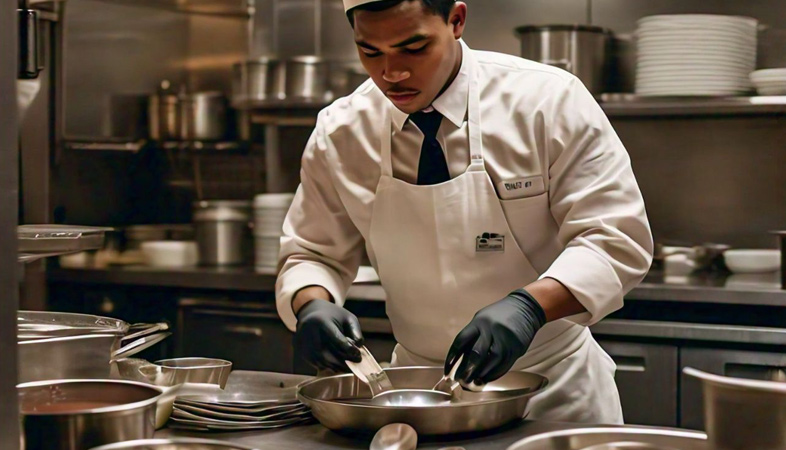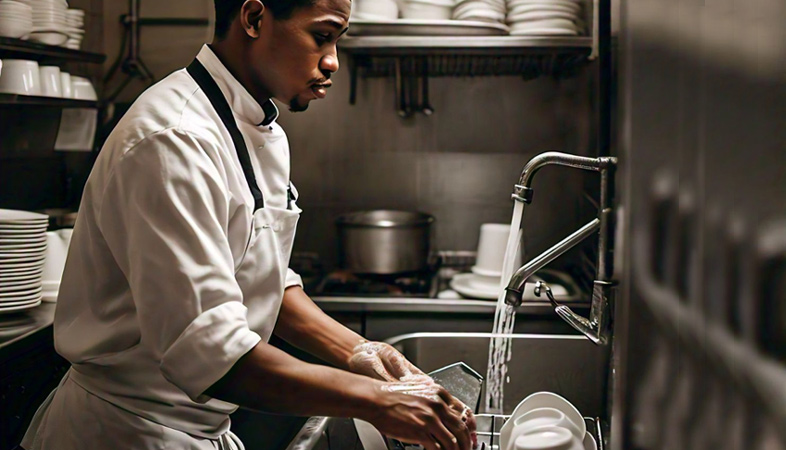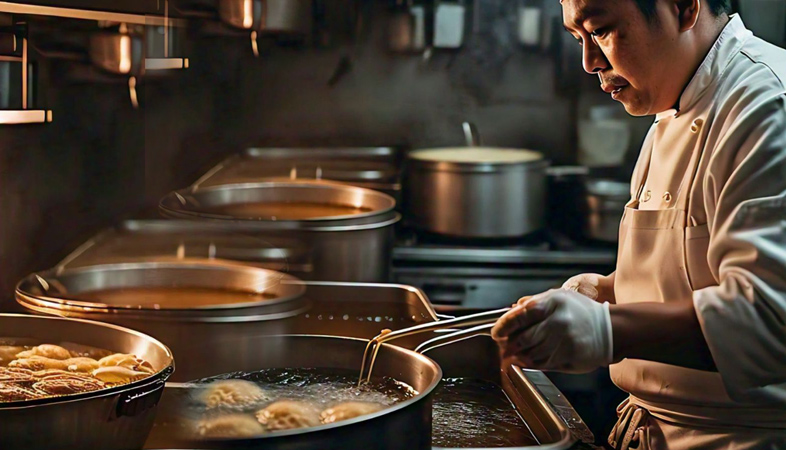Building an Effective Stewarding Team: Key Roles and Responsibilities
Building an effective stewarding team involves understanding key roles and responsibilities that can enhance productivity and create a seamless working atmosphere.
In the bustling environment of a professional kitchen, the
stewarding team plays a pivotal role in ensuring that operations run smoothly.
Often operating behind the scenes, stewards contribute significantly to
maintaining high standards of cleanliness and organization, which are essential
for the success of any culinary establishment. Building an effective stewarding
team involves understanding key roles and responsibilities that can enhance
productivity and create a seamless working atmosphere.
At the core of an effective stewarding team is the Head Steward or Stewarding Supervisor. This individual oversees the entire stewarding operation, ensuring that cleanliness, organization, and safety standards are upheld. The Head Steward is responsible for scheduling staff, managing inventory, and coordinating with other kitchen departments to ensure that all needs are met. A strong leader in this position will foster teamwork and motivate the stewarding staff to perform at their best, creating an environment of collaboration and mutual respect.
The Dishwashing Staff is another crucial component of the stewarding team. These team members handle the washing, sanitizing, and storage of all kitchen utensils, cookware, and dining ware. Their work ensures that the kitchen remains organized and that chefs have access to the clean tools they need to create exceptional dishes. Training for the dishwashing staff should focus on proper techniques, equipment operation, and the importance of hygiene. Efficient dishwashing practices can significantly reduce downtime in the kitchen, allowing for a smoother workflow.
Additionally, the Cleaning Staff is responsible for maintaining overall cleanliness in the kitchen and dining areas. This includes sweeping, mopping, and sanitizing surfaces, as well as ensuring that all waste is disposed of properly. Effective cleaning protocols are vital for food safety and maintaining a positive environment for both staff and guests. Regular training on cleaning techniques and safety standards helps the cleaning staff understand their responsibilities and the impact of their work on the overall dining experience.
Inventory Management is another critical aspect of the stewarding team's responsibilities. The stewarding staff must ensure that kitchen supplies and equipment are well-organized and easily accessible. This includes tracking inventory levels, conducting regular checks, and placing orders for necessary supplies. By effectively managing inventory, the stewarding team helps prevent shortages that could disrupt kitchen operations. Good communication with suppliers and other kitchen departments is essential to ensure that all needs are met in a timely manner.
Training and Development are key to building an effective stewarding team. Ongoing training sessions that cover hygiene standards, equipment usage, and safety protocols are crucial. Providing opportunities for professional growth, such as cross-training in other kitchen roles, can enhance team members’ skills and increase their value to the operation. This investment in training not only benefits individual staff members but also contributes to a more efficient and cohesive team overall.
Collaboration and communication among team members and with other kitchen staff are vital for success. A culture of open communication fosters teamwork and ensures that everyone is on the same page regarding expectations and responsibilities. Regular team meetings can be beneficial for discussing challenges, sharing best practices, and recognizing outstanding performance. When stewards feel supported and valued, they are more likely to take pride in their work and contribute positively to the kitchen environment.
In addition to their technical skills, effective stewards should embody qualities such as attention to detail, time management, and a strong work ethic. These traits are essential for thriving in a fast-paced kitchen setting, where priorities can shift rapidly. Stewards must be able to adapt to changing circumstances while maintaining high standards of performance. Hiring individuals who demonstrate these qualities can contribute to a more reliable and efficient stewarding team.
Recognizing and rewarding the contributions of the stewarding team is another important aspect of building an effective group. Acknowledging hard work and celebrating achievements can boost morale and encourage a culture of excellence. Whether through employee recognition programs, team outings, or simple gestures of appreciation, showing gratitude for the stewarding team's efforts can enhance motivation and commitment to their roles.
Building an effective stewarding team involves understanding key roles and responsibilities that contribute to the overall success of a kitchen operation. From the leadership of the Head Steward to the diligent work of the dishwashing and cleaning staff, each member plays an integral part in maintaining high standards of cleanliness, organization, and efficiency. By investing in training, fostering collaboration, and recognizing contributions, culinary establishments can create a stewarding team that enhances the dining experience for guests and supports the success of chefs and kitchen staff alike.
.png)





























